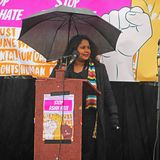What should the social contract of a tolerant city look like? The Amsterdam conference on tolerance will discuss the meaning of tolerance, respect, acceptance and appreciation with a variety of international researchers, local politicians and inspirations. The conference was initiated by city council member Tjakko Dijk in 2018 and is hosted by the city government. The general sessions will reflect on daily city-life experiences: what is tolerance? How to measure it? What can citizens expect of each other and of the city government? The theme sessions will zoom in on the themes: work, education and sports. Actively join and participate online on January 20th!
This programme will be translated and subtitled via Zoom. Click on “Closed Caption (CC)” to see the subtitles.
Program (Central European Time):
Plenary program
13.00-13.05 Opening
13.05-14.20 Amsterdam Panel: Tolerance in Amsterdam
14.20-14.30 BreakParallel theme sessions
14.30-16.00 Theme session: Tolerance at Work
14.30-16.00 Theme session: Tolerance at School
14.30-16.00 Theme session: Tolerance in SportsPlenary program
16.00-16.15 Break
16.15-17.30 General session: What is tolerance?
17.30 Closing
General session: Amsterdam Panel
As cities are becoming more diverse, tolerance is an increasingly diverse topic. Tolerance itself is member of a family of terms that also includes acceptance, respect, and appreciation. In a tolerant city one would expect citizens to appreciate differences in the field of culture, sexuality, religion, lifestyle, ethnicity and other fields. In reality, this is not always the case.
The two general sessions will zoom in on the question: what is tolerance? Is Amsterdam a tolerant city? How could one measure this? If Amsterdam where to draft a social contract on tolerance, what should be in it? And who should sign it?
Case: In a city, two families are living next to each other. They are from different beliefs and would never opt for each others’ lifestyle. When asked in a survey, they state they would prefer their neighbours to leave the area. However, in reality, they greet each other and help each other out when one of them forgets their keys. In other words, they act respectfully.
Should a tolerant city settle for this situation, or do more? And who should then intervene?
Case: An enthusiastic community leader has stated that she wants the social contract of the tolerant city to be taught everywhere. She wants schools to hear about it, as well as policemen, entrepeneurs and workers in all types of buildings.
How could she start drafting the social contract? What are the relevant themes?
Speakers
- Tjakko Dijk is an innovative bridge builder who knows what is going on in society and has a good eye for political-administrative sensitivities. The innovativeness is reflected in his non-conventional approach to issues when necessary. His main priority is to develop support in order to achieve the best possible result with those involved. In such a way that those involved look back on the process with satisfaction and are proud of the result.
- Cees Maris is emeritus professor of philosophy of law at the University of Amsterdam, extraordinary professor at the University of the Western Cape and visiting professor at the University of Curaçao. Among his publications are A Critique of the Empiricist Explanation of Morality; Letters on Liberty; Law, Order, and Freedom; Twelve Loves; and Tolerance: Experiments with Freedom in The Netherlands. He also wrote and staged the philosophical oratorio Horror Vacui (with the composer José-Luis Greco), and the philosophical plays The Dance of Zarathustra and We Want Our Freedom!
- Sarita Bajnath is board member CBK ZO, diversity and inclusion coach, expert and trainer










